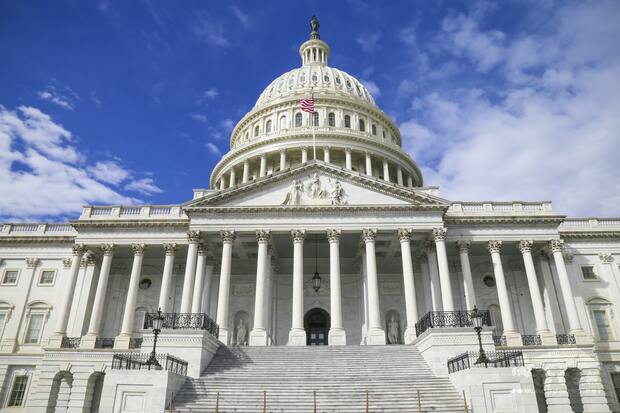
The bill is co-sponsored by Ami Bera (D-CA), chair of the House Foreign Affairs Subcommittee on Asia, John Curtis (R-UT), as well as four co-chairs of the Taiwan Caucus -- Gerry Connolly (D-VA), Albio Sires (D-NJ), Mario Diaz-Balart (R-FL) and Steve Chabot (R-OH).
The bill is aimed at amending the Taiwan Allies International Protection and Enhancement Initiative Act of 2019, or the TAIPEI Act, that was enacted in March 2020, according to the draft bill.
The TAIPEI Act is intended to advocate Taiwan's participation in international organizations as either a member or an observer, and to promote Taiwan's relations with the U.S., its allies and other countries around the world.
The draft bill stipulates that the U.S. opposes "any initiative that seeks to change Taiwan's status without the consent of the people."
It rejects Beijing's attempt to claim that Taiwan is part of China.
The United Nations General Assembly Resolution 2758 (XXVI) designates the People's Republic of China as the only lawful representative of China, but it "did not address the issue of representation of Taiwan and its people in the United Nations or any related organizations, nor did the resolution take a position on the relationship between the People's Republic of China and Taiwan or include any statement pertaining to Taiwan's sovereignty," according to the draft bill.
The draft bill stipulates that the U.S. should instruct representatives of the U.S. government to use their voices, votes and influence to advocate in international organizations to "resist the People's Republic of China's efforts to distort the decisions, language, policies, or procedures of such organizations regarding Taiwan."
In the TAIPEI Act's Sense of Congress section, it states that the U.S. should support Taiwan in strengthening its diplomatic relations with its allies and partnerships with other countries. It also suggests that the U.S. should consider altering its engagements with nations that take serious or significant actions to undermine the security or prosperity of Taiwan.
The draft bill also adds to the TAIPEI Act provisions that the U.S. should encourage its allies and partners to oppose China's efforts to undermine Taiwan's official diplomatic relations and its partnerships with countries with which it does not maintain diplomatic relations.
In addition, the draft bill also calls on the U.S. secretaries of state to specify China's attempts to undermine Taiwan's membership or observer status in international organizations in the State Department's annual report.
This also stems from the TAIPEI Act, which requires the Department of State to report to Congress annually how it has helped strengthen Taiwan's diplomatic relations and partnerships with countries around the world.
"China has mounted pressure on international organizations to claim that Taiwan is part of China" since the TAIPEI Act became law, said Curtis. "This bill adds to the TAIPEI Act in a way that would counter these attempts."
"Beijing has distorted policies and procedures at the U.N. and related bodies to assert its sovereignty claims over Taiwan, often to the detriment of global health and security efforts," said Connolly, who added that the proposed legislation is a reflection that the U.S. stands in solidarity with Taiwan.
Joanne Ou, spokeswoman for the Ministry of Foreign Affairs (MOFA), expressed gratitude for the support for Taiwan.
The ministry will closely follow the development of the bill and will continue seeking opportunities for collaboration with the friends in the U.S. Congress and the U.S. administration, Ou said during a press briefing on Tuesday.
The draft bill will be reviewed by the Committee on Foreign Affairs. If it goes through the committee, it will then be voted upon in both the House and Senate before the president signs it into law.